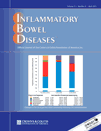Cytokine regulation of OCTN2 expression and activity in small and large intestine
Abstract
Background:
The organic cation transporter OCTN2 is located on the IBD5 risk allele and has been implicated in the pathogenesis of inflammatory bowel diseases (IBD). OCTN2 is expressed in the apical membrane and transports many solutes including bacteria-derived mediators that may be involved in host–microbial interactions. To explore its role further, we examined potential regulatory factors in human IBD and in experimental models of OCTN2 expression.
Methods:
Human colonic epithelial cells (Caco2BBE) were used to investigate the effects of inflammatory mediators on OCTN2 activity and expression. Apical membrane expression of OCTN2 was assessed by surface biotinylation. Rag-1−/−-deficient mice were used to determine the potential role of adaptive immune cells in the regulation of OCTN2 expression. C57Bl/6 mice were treated with the cytokines interferon-gamma (IFN-γ) and tumor necrosis factor-alpha (TNF-α) to determine the effects on OCTN2 expression and activity. OCTN2 expression in human IBD specimens was assessed by Western blotting and immunohistochemistry.
Results:
OCTN2 activity and expression are regulated by the state of intestinal inflammation. OCTN2 expression in colonic tissues of Rag-1−/−-deficient mice was reduced. Treatment with IFN-γ and TNF-α increased intestinal OCTN2 expression, particularly in the colon. IFN-γ increased both total and apical membrane expression of Caco2BBE OCTN2, whereas TNF-α stimulated apical expression. Colonic epithelial OCTN2 expression was increased in actively inflamed areas of both Crohn's disease and ulcerative colitis.
Conclusions:
Intestinal epithelial OCTN2 expression is increased by intestinal inflammation, most likely through increased levels of proinflammatory cytokines. These findings suggest that OCTN2 may participate to restoration of intestinal homeostasis under conditions of inflammation-associated stress. (Inflamm Bowel Dis 2011;)




